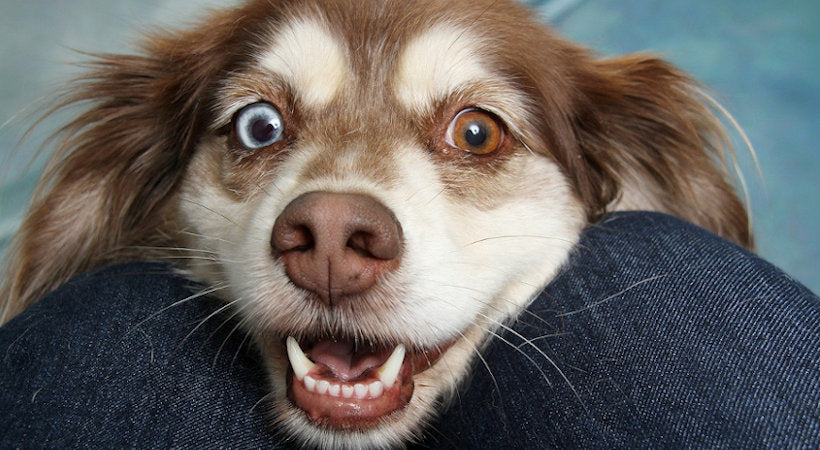How to Help a Dog With Arthritis at Home (10 Changes to Reduce Pain)

Good Dental Health is Crucial for Dogs and Cats
Good dental health is as important for your dog or cat as it is for you! Unfortunately, over 80% of pets have periodontal disease by the time they are three years old. This includes the teeth, gums, roots and the bones around your dog’s roots anchoring them in the jawbone.
Did you know that it only takes 72 hours for food particles to build up to cement-like hardness on your pet's teeth?
Dangers of Poor Dental Hygiene in Pets

Bacteria from under the gums can enter your pet’s bloodstream and cause damage elsewhere in your pet’s body. These bacteria can travel to the heart, kidneys and liver leading to further health risks.
Not caring for your dog’s teeth has dangerous consequences beyond bad breath and losing teeth. The bacteria and infection in your dog’s mouth can dangerously impact your pet’s immune system too.
Health Risks Include:
- Cardiopulmonary Disease
- Diabetes complications
- Can lead to broken or fractured jaws (especially in smaller pets)
Benefits of Professional Dental Cleanings
Scheduling a regular dental cleaning for your pet is vital to their continued health. During a professional dental cleaning, your pet’s Veterinarian will remove plaque and tartar from your pet’s teeth. Well your pet is anesthetized, the Vet will also check overall mouth health including the tongue, gums, lips and teeth. They will look for signs of wounds, growths or any other areas of concern. Not only will your pet’s teeth look better after the cleaning, but a professional dental cleaning eliminates the source of infection that could cause disease, pain, and tooth loss.
Signs Your Dog is Overdue for the Dentist
Schedule your annual Vet checkup, so that they can check your dog's teeth and oral health regularly. Dogs are capable of masking their pain, so you can not solely rely on visual cues that your dog's teeth are hurting them. Here are a few things you may notice:
- Brown or yellow buildup on your dog's teeth and gum line
- Redness or bleeding along the gums
- Bad breath
- Drooling
- Pawing at the mouth
- Lack of appetite
- Difficulty chewing
- Loose teeth
- Missing teeth
At Home Dental Care
Regularly caring for your dog’s teeth at home can minimize the frequency of professional cleaning and improves mouth health. Talk to your Veterinarian and discuss the options available for your pet. Here are a few simple things you can do to improve your dog’s oral care:
- Brush Teeth Daily: regularly clean your dog’s teeth and gums to remove food particles. Use a child’s toothbrush or a finger brush designed for pet teeth. Avoid human toothpaste, use a toothpaste designed for pets, not only is it easily digested by your pet it will also taste better.
- Switch to a Dental Diet: ask your Veterinarian if you should switch foods. A large kibble that needs to be chewed for longer can be more abrasive on your pet’s teeth and work to break up tartar buildup
- Use Dental Treats and Chews: specially made dental treats are great to break up plaque on your pet’s teeth.
- Water Additives: for pet’s that don’t like to or have difficulty chewing there are dental liquids that can be added to your pet’s water daily.










